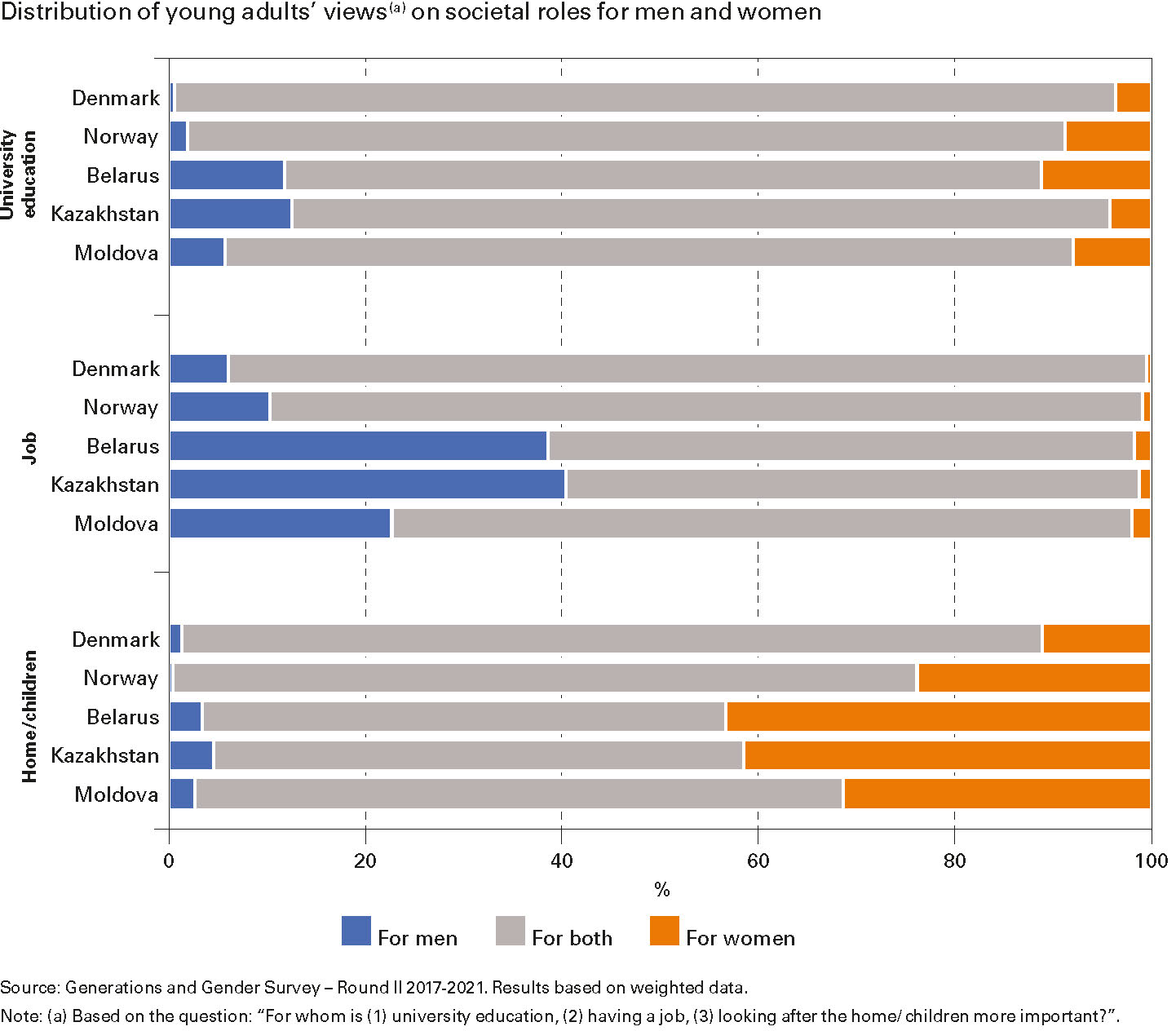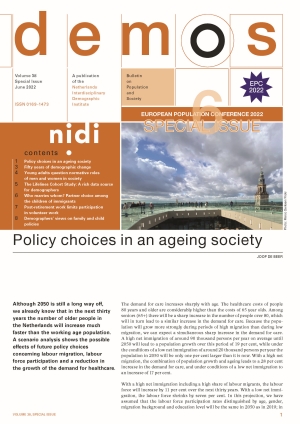Between the ages of 18 and 35 people are expected to gradually take on more responsibilities and adopt new adult roles. Since it has become more common to pursue higher education, young people often take on the role of ‘student’ as part of this transition to adulthood. When young people enter the labour market, they are assigned the role of ‘worker’. The decision to start a family introduces young people to responsibilities that can be summarised as the role of ‘homemaker’. Traditionally, societal norms have determined which of these roles are essential for young men and women. The combined trends of higher educational attainment and higher labour market participation among women are said to stimulate the spread of more egalitarian ideas about the division of labour within the household. But does this assumption hold true for all young adults across countries? What about the views of young people that grow up in countries where norms about life aspirations are structured strongly on the basis of gender?
The Generations and Gender Survey (GGS) is a valuable resource for the study of gender equality from a cross-national perspective. To find out how young adults in different countries think about the importance of various societal roles in the lives of men and women, we used data from GGS round 2 collected in Belarus, Kazakhstan, Moldova, Norway and Denmark during the period 2017-2021 and selected respondents aged 18-35. The three post-Soviet countries represent societal contexts with a gender-based division of household labour, whereas the two Nordic countries represent societies characterised by a more egalitarian approach.
The figure below shows the distributions of young adults’ answers to three questions about the relative importance of ‘university education’, ‘having a job’ and ‘looking after the home and children’ for men or women.

Only a small minority of young adults in Belarus, Kazakhstan and Moldova reported that a university education is more important for either men or women. Regarding the worker role, between roughly 20 percent (Moldova) and 40 percent (Belarus and Kazakhstan) of young adults believe this to be more important for men. The role of homemaker is seen as more important for women by about one-third of young adults in Moldova and 40 percent of young adults in Belarus and Kazakhstan. Nevertheless, the figure mainly shows that across all countries, the majority of young adults expressed the belief that these roles were equally important for men and women. Even in countries in which traditionally a gender- based division of household labour is strongly emphasised, young adults express egalitarian ideas about the roles of men and women in society.
Data collection for GGS round 2 is ongoing. In due time, inclusion of a larger variety of countries can extend this research. Check GGP’s website (https://www.ggp-i.org/) for more information on forthcoming data releases.
Lin Rouvroye, NIDI-KNAW/University of Groningen, e-mail rouvroye@nidi.nl
Olga Grünwald, NIDI-KNAW/University of Groningen, e-mail: grunwald@nidi.nl
Anne Gauthier, NIDI-KNAW/University of Groningen, e-mail: gauthier@nidi.nl
Literature
- Gauthier, A. H. et al. (2018), Gender (in)equality over the life course. (Discussion Paper; No. 10). Max Planck Society for the Advancement of Science on behalf of the collaborative network “Population Europe”.


